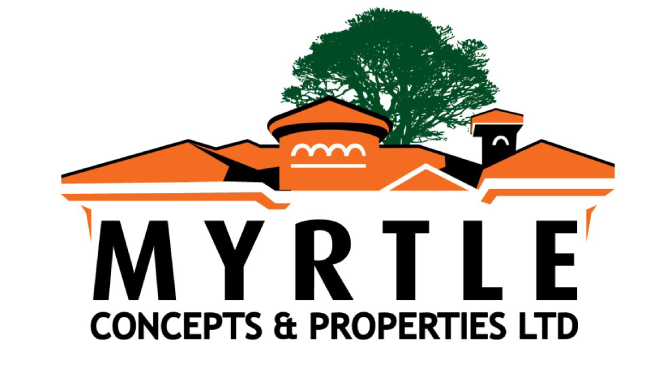
Ms. Shirley Kongai President, Association of Real Estate Agents-Uganda Board Member, Private Sector Foundation Uganda (PSFU)
TOPIC: THE REAL ESTATE AGENTS BILL, 2021
The Real Estate Sector is unregulated and this has resulted into a vast number of challenges in the sector. However, the Real Estate Agents Bill has been drafted and tabled in parliament aimed at regulating the real estate sector in Uganda.
i. What is the current state of the Real Estate Sector in the country?
At the moment, the real estate sector is unregulated, and everyone is doing their businesses in their own way without any government intervention.
Like any other professionals for instance the lawyers, engineers, the architects, their services are regulated by legally recognized professional bodies. In October 2022, the Physical Planner’s Registration Act, 2022 was assented to regulate physical planners. However, for the real estate sector, it has no legal framework to guide the agents.
The real estate sector is unique in its own way as it encompasses both the formal and the informal players with over 70% being the informal sector players.
However, to achieve a coordinated and harmonized working relationship in the real estate value chain, the Real Estate Agents Law is essential to bridge the gap in the sector.
ii. Why is this bill so important?
Generally, the real estate sector is informal with minimal contribution to the country’s GDP compared to the projected benefits that would be realized when it is regulated.
Currently the real estate sector has been penetrated by fraudsters under the guise of being brokers. People lose their hard-earned money to such brokers through multiple selling of the property and very many other unscrupulous transactions. This has been happening and there is no way, we can support the public to overcome it unless there is a regulatory body that overlooks the sector. Therefore, an intervention is needed in the sector to resolve the current crisis that is hindering progress in the sector.
One thing to note is, if a broker defrauds anyone, other than going criminal for which you may not have evidence against the broker, there is nothing you can do. You cannot even find the broker who defrauded you because he/she has no physical address. There is a lot of informality, the brokers in the sector have no physical address yet they have a significant contribution to the sector. Therefore, it is paramount to guide their work to enhance professionalism.
Another key aspect is there is no information to guide real estate investment. It is just scattered amongst the different individuals and entities in the private sector. What we need is a centralized and systematic flow of information so that when you are doing research, you can visit a specified website or office to access synchronized information.
The government has not yet fully recognized the contribution of the sector. Real estate affects each and every Ugandan, it is one of the sectors that needs to be prioritized. Usually, the major focus and discussion is centered on housing which is a subset of the real estate sector. What we need is to recognize the real estate as a whole, and provide a legal framework that guides it.
iii. What key issues does the bill address?
The overall goal for the bill is to regulate the real estate sector. The prominent issues entail.
Establishment of the committee. The committee will overlook all the activities happening in the real estate sector and devise means on how best to improve the sector in a collective effort with the stakeholders.
Establishment of a tribunal. The tribunal will handle the increasing cases of fraud and any aggrievances arising from the conduct of business in the sector.
Registration and Licensing of real estate agents. The bill provides for the registration of real estate agents. However, to be registered, there are conditions to be fulfilled which include;
-You must be a subscribed member of the Association of Real Estate Agents of Uganda.
-Must hold a real estate related degree, diploma or certificate from any recognized institution.
-Payment of the prescribed fees by the committee.
When registered, you will be issued a license from the committee which can either be issued or deferred with reasons attached.
The bill continues to emphasize that anyone found carrying out business as a real estate agent without a license commits an offence and is liable on conviction to a fine not exceeding 10M or imprisonment for a period not exceeding 2 years or both.
Emphasis on the Real Estate Agency Agreement. The bill provides for a written agency agreement between the landlord and the tenant. Usually, the brokers have been relying on verbal arrangement with the landlords and tenants, but now, a written agreement is a prerequisite. Failure to write the agreement for the services rendered, the broker or any other agent is not entitled to any commission for the services rendered.
iv. Who is the agent in this regard?
Currently everyone can become an agent for instance an individual wakes up and hangs notices/papers around the neighborhood indicating his contact and services. Out of the blue, he begins offering brokerage or property management services without any regulation. This partly indicates why there is a lot of fraud in the sector.
But the bill defines the agent to encompass both the property managers and the sales person/broker. To be recognized by the bill as an agent, you must be registered by the committee and issued with a license renewable annually.
v. In land transactions, we have encountered the challenge of fraudsters, how does the bill address the issue?
Fraud in the real estate space is on either side, it is not only on the side of the agents. Sometimes, the agents are also cheated. Take a scenario when someone tells a broker that he/she is selling his land, the broker starts to look for clients investing in transport and time, then the landlord sells the property without even notifying him/her. So, who refunds that money to the broker? It is either way, it is not that the broker is always the bad one, cheating is on either side.
Sometimes brokers cheat because they are not sure that they will get the money they have worked for. So, they become aggressive, do any other thing possible to claim an equivalence of their input which is usually done in the wrong. But if the brokers are sure that they will get their pay, there would be no fraud cases. Therefore, with the new law to be assented, it emphasizes both parties are protected through signing of the contract.
The bill provides for the establishment of a code of conduct which will be the basis for disciplinary control for all licensed agents. When an agent engages in fraud, he/she is liable to fine not exceeding Ugx 20M or impose any other disciplinary action deemed appropriate.
vi. Most times we have encountered challenges of unprofessionalism in the real estate sector where everyone can be an agent without any training. How does the bill address this?
The bill provides for a certificate of practice in addition to other prerequisites mentioned above to be registered and issued a license. We did not lock it up to a specific level of training because we know that our sector is unique and everyone in the sector has to be included.
vii. Any other important remarks that you would want to highlight for Ugandans in regards to this bill?
This bill once assented into law, it will propel the real estate sector in Uganda to an international level. In 2020, the president of the International Real Estate Society wanted to visit Uganda to identify investment opportunities. But he said, we are not coming to Uganda until the sector is organized. So, we are losing out on capital for investment to boost our economy. Let us be deliberate to regulate and control business in the real estate sector so that we can attract investment.

